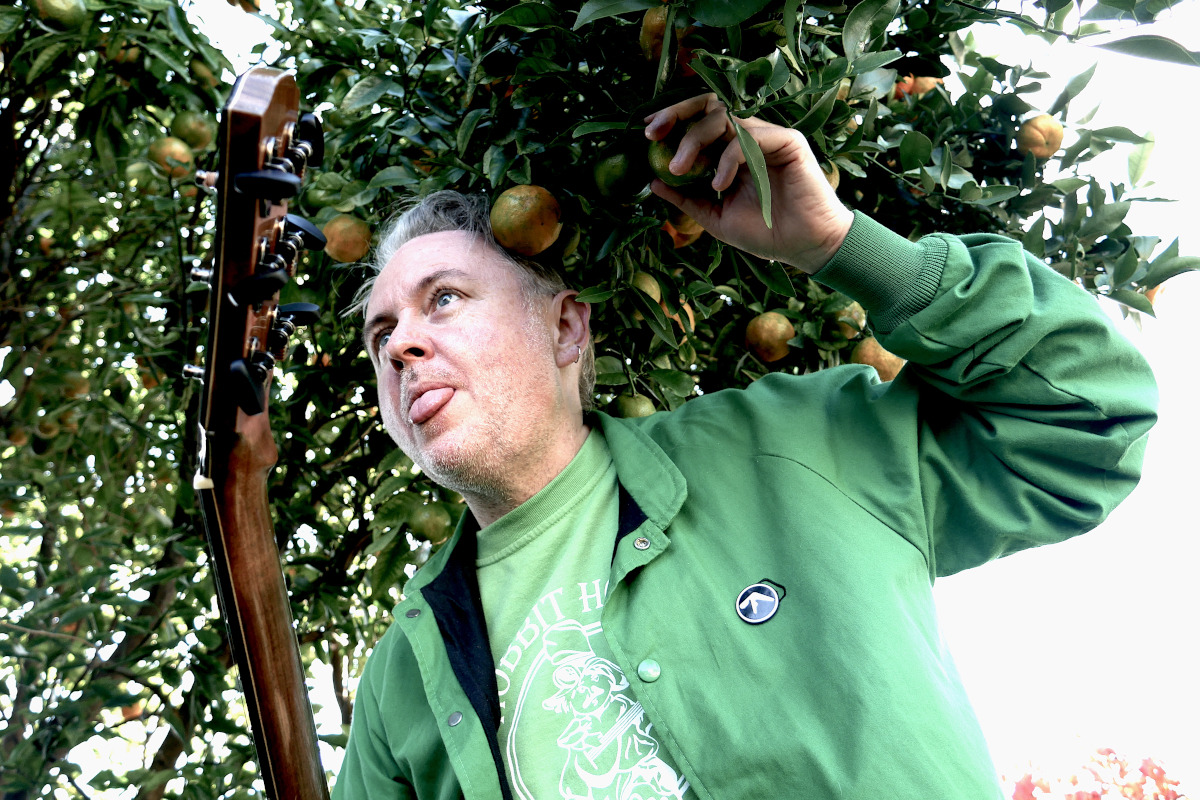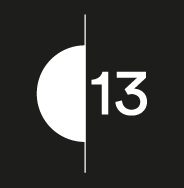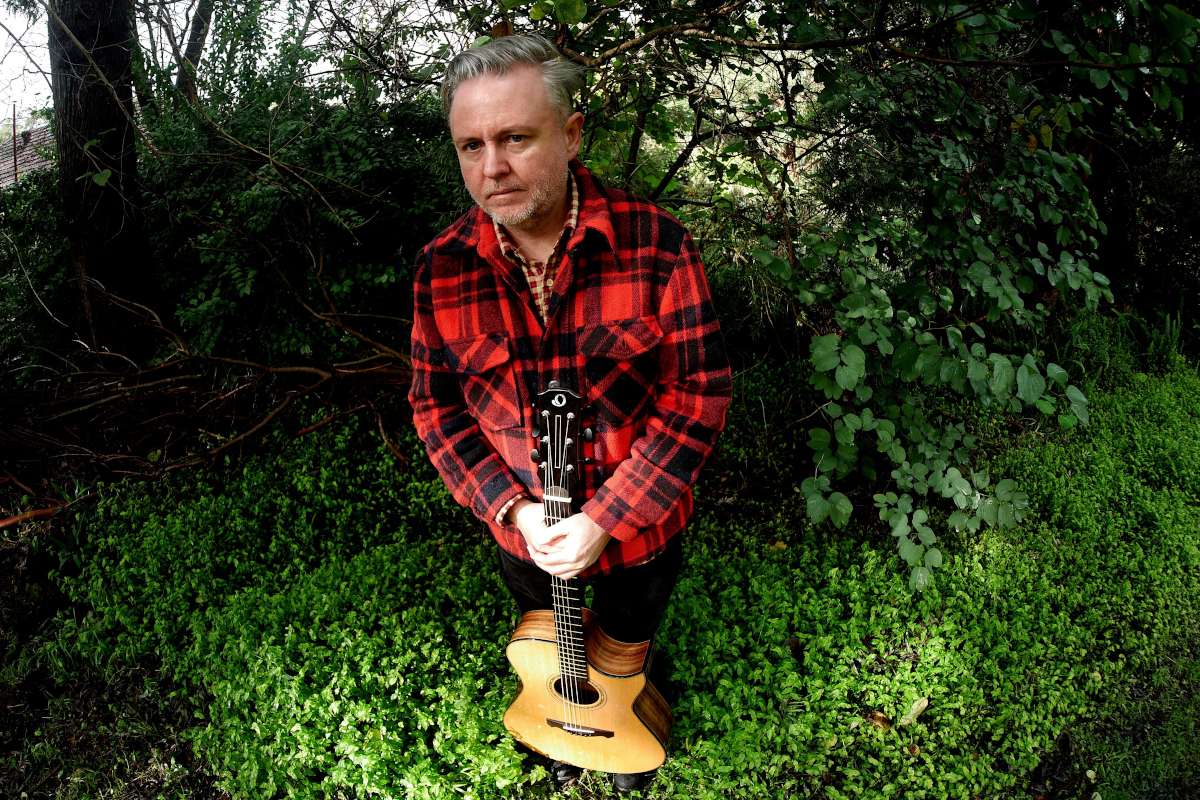While perhaps forgotten in some circles, in others Darren Cross is rightly celebrated as an artist ahead of his time.
Part of ’00s mind-mangling odyssey, Gerling, the Sydney band (which also featured Paul Towner a.k.a. ‘Presser’ and Burke Reid) were a key figure during a period in Australian music history where it seemed like the underground finally had a voice beyond the small community circles vital to DIY culture.
On the back of their first two albums, Children of Telepathic Experiences (1998) and When Young Terrorists Chase the Sun (2001), not only were Gerling a focal point across the Australian music creative landscape, they were a soundtrack to it.
Gerling brought something completely different to the table, and while perhaps considered in the shadows of their celebrated Australian counterparts, the Avalanches, listening to When Young Terrorists Chase the Sun all these years later, it’s not surprising to learn that it still holds up as well as it did 23 years age. Evidence of a band truly ahead of the curve.
Before calling it a day 2007, Cross collaborated with everyone from Kylie Minogue to Kool Keith and the above noted Avalanches. Since, he has straddled many genres in his quest to keep moving beyond the borders. Starting with E.L.F., which spawned the 2010 LP, Plankton Icke and Tina Turner David City Limits. From there, Cross went on to form the folk duo Jep and Dep alongside his partner, Jessica Cassar, before performing under his own name, releasing albums _Xantastic, (2016) Peacer (2018), Keeping Up? (2020) and Distorder (2021).
Now performing as D.C. Cross, the Sydney artist has explored the concept of primitive guitar to great effect. Sculpting the kind of guitar sketches inspired by John Fahey and more recent be-stringed exponents, William Tyler and Matthew J. Rolin, it’s seen the Sydney artist in constant creative flow, with albums Ecstatic Racquet (2019), Terabithian (2020), Hot-wire the Lay-low (Australian escapist pieces for guitar) (2022) and Wizrad (2023).
The latest instalment is Glookies Guit. Woodsy, cosmic wanderings to destination unknown. It continues the guitarist’s peaceful pilgrimage of deep space and free movement. The breezy sway of International Bury the Hatchet Day and Rhinestones, in Black and White; the blissful atmospheres of Wattle Battle; the wonderful Edward River, Deniliquin Flow which alongside Glookies Guit.’s closing encounter, EU Psychic Travel Club, sees Cross finding the nexus between Australia’s metropolitan and regional areas.
It’s the big take away from Glookies Guit. An outsider’s perspective of Australia is often strange, mistaking it for a metropolis of beaches and clean living while the vast terrains of regional parts of the country are considered a footnote. Glookies Guit. sees Cross link the two through sound in what is an album of locality. Once again, he’s tackling things from another angle, and from his days in Gerling to his acoustic-based endeavours as D.C. Cross, it’s a career that has been spent positively going against the grain.
Shortly after the release of Glookies Guit., Cross answered our questions via email, talking about his new album, and what it’s been like since the days of performing live on Recovery and being a focal point of Australia’s alternative culture at the turn of the century.

D.C. CrossSun 13: Your formative years were in the ’90s where I remember ABC’s Recovery, late night Rage and Triple J created the country’s alternative culture. Were these key reference points for you as well?
Darren Cross: “Totally. ABC were so cool in the ’80s and ’90s when I was a kid. Sneak out of bed at night and turned on telly when I was nine years old and saw The Birthday Party – Nick The Stripper or AC/DC live blasting from the screen from the all night RAGE Music show on ABC. Rage I first saw lots of music that I still love – Swervedriver, Sonic Youth, Nick Cave, Joy Division (live) Kreator (lol), anything alternative that would never have been played on the radio.
“Gerling played on Recovery TV a few times and we really went nuts. Very crazy stuff for Saturday morning television. But the ABC were so left of centre in the ’90s early ’2000s we fit in well. Triple J also was cool back then. A different time back then. When Triple J started playing our band on the radio, we suddenly had an audience. It was thrilling for a few years to be surfing within the alternative machine.”
S13: It’s been quite a musical journey for you, from collaborating with the likes of Kylie Minogue to adopting a purely DIY approach with your latest solo endeavours. I can’t think of many Australian artists that have featured at both ends of the spectrum like you have. Is that something you’ve thought about over the years?
DC: “Not really! I guess I’m a music lifer. Maybe it’s stupidity, my willingness to feed the muse. People I went to school with now have houses and grandkids out in the suburbs or they are going to jail for financial embezzlement (true). I just get stuck into any of the projects I do and reach the level of artistry I’m happy with. This has nothing to do with commercial success in the music field / sphere. Keep chugging along doing what I love to do: make music and hope the right people hear it and fall in love with it! Stay happy. Non-conform. Non, je ne regrette rien.”
S13: Is primitive guitar something you’ve always been interested in?
DC: “Indirectly, yes. Alternate tunings have been a big thing with my guitar playing most of my life. Hearing Nick Drake for the first time changed it all for me – but I only heard about Nick through a Lou Barlow from Sebadoh interview – went into my favourite record store Waterfront and they sold my Things Behind the Sun Nick Drake Cd comp when U was a teenager. Game changer.
“Finding John Fahey, later in the life, after I had been playing around (accidently) with open C guitar tuning for years was a light bulb moment. Then hearing Kottke and all the players on Tacoma gives you a framework to go towards with the guitar. I’m trying to create my own thing within it. No use ripping off Fahey! Too hard, anyway: he’s the godfather. The basic premise of rhythm, bass, melody, composition and all on acoustic is the most fun to play on guitar – not relying on pedals to create the vibe with an acoustic guitar’s thrilling, unrestrictive.
“When I was a teenager, I would listen to old blues music and play along with it. I had no idea who it was as it was a weird radio station each Monday night. Probably Mississippi John Hurt, people like that, country blues picking. I would tape the show on cassette.”

D.C. Cross - Glookies Guit.S13: You’ve been on a great run of form, and Glookies Guit. continues it. Can you tell us about the process behind it?
DC: “Thank you! I have been playing a lot of guitar recently as I’m doing two hour shows – two sets – 20 odd songs now, so you got be able to play the guitar or you look like a turkey. This makes everything easier. I felt I was on top of ‘my’ game and had to set a new record in stone. Took a few edibles and stayed up all night for a month or so. I record it all myself in my spare room in a place me and Jess and my dog live at. So [you] just have to get good takes, the right vibe, can be in any state of mind. Sometimes the best takes happen at 9am after a strong cup of tea. Having my own set up is the best. Nothing fancy. Three good Rode mics and two great guitars. Opus hand built acoustic and Maton Artist EBG808. Lots of guitar playing.”
S13: What was the key aspect you wanted to capture with the record?
DC: “A uniquely Australian sounding solo guitar album bordering on technical and emotion. I call the style Ecstatic Guitar.”
S13: There are field recordings from various parts of the world that make their way onto the record. Is travelling a big influence of yours, and does it inform the idea of the final recording?
DC: “Yes, I’m very inspired by travelling and field recording helps me remember a time of inspiration. The vibe from the field recordings, for me, is a powerful nostalgia inducer. It’s magic. Sometimes I write the basis of the song in a location and then call it after the place. Like on the new album Edward River, Deniliquin Flow is about a rural town called Deniliquin.
“The location, getting to the place, exhaustion, the people you meet, the food you eat, all shapes the inspiration for when inspiration strikes.”
S13: Mikey Young has mastered work from all over the world. You’ve also worked with Chuck Johnson in the past, too. Do you like to collaborate with different people for each record?
DC: “With mastering yes. I wanted to work with Mikey for ages, but he was always booked up (I’m a spontaneous person). I love his band Eddy Current Suppression Ring and he’s a cool guy who does lots of music I love, so I’m psyched about him.
“Chuck Johnson I’m a real fan of as well. If I have the money for mastering at the time I love to get it mastered. Willliam Bowden (King Willy Sound), an old friend, masters my music sometimes as well. If I’m skint I will master it myself, which is a stress but hey, got to do it!”
S13: Do you work on music every day, and do you have a general writing process?
DC: “Yes, I work on music every day. I work on projects at a time and get stuck into the album. Can’t really do other projects at the same time, so if it’s D.C Cross Ecstatic Guitar time that’s what I will start and finish.
“With picking patterns, sometimes they take a lot to learn what’s in my head. One new pattern off Glookies Guit. took me three weeks straight. I would practise for 20 minutes at a time. It’s crazy. It was an African rhythm that I still didn’t get right but made my own composition out of it. Never force the writing, though. As Bukowski said ‘Don’t fight’ meaning if it’s not happening naturally, flowing out, just wait. Writer’s block is bullshit. The Forgottening off Glookies Guit. is the track I’m on about here… the pattern that took me three weeks to learn.”
S13: Are your immediate surroundings a big influence on your music?
DC: “Yes. I’ve got to be stress free and focused on the music or I am angry and off with the pixies. Especially when playing guitar for hours at a time. I set up my space / studio just right. It’s mad – drills, hammers, axes, old drum machines, video glitching stuff, guitars, mics, mic leads, Bukowski posters, Smiley Flags, old mac computers, it’s my music nest! Create the world of the album.”

D.C. CrossS13: During your days in Gerling, it felt like the last hurrah for many forward-thinking artists in Australia to be signed by bigger labels and subsequently tour more regularly. How would you compare those days to the current landscape?
DC: “Current landscape I have no idea about. I try to avoid the music industry as much as I can. Forward thinking artists hitting the mainstream these days? I doubt it, but hey what would I know. I try to find the underground music, somehow…. or dig up old music, revisit Aphex Twin or something. I’m not sure. I’m not going to make concessions for something if I don’t like it, though. That’s very un-2024. Gen Xer. There’s a beauty in having no nepotistic power. I can be myself.”
S13: Do you think the music you make under D.C. Cross reflects your personality, or do you consider your art more of an escapism?
DC: “Yeah, it’s me. I find it’s more personal if it’s instrumental because there is no ego character there to protect it. It’s just the music, art is my escapism – maybe I’m trying to escape myself!”
S13: Has the Labor government made things easier for artists in Australia, or is it still much the same?
DC: “It’s exactly the same. More outrageous property developments. Things are getting more expensive by the minute. Rich getting richer. Takes eight years for a new government’s changes to start making change. We will see. It’s been four, I think…”
Glookies Guit. is out now. Purchase from Bandcamp.

